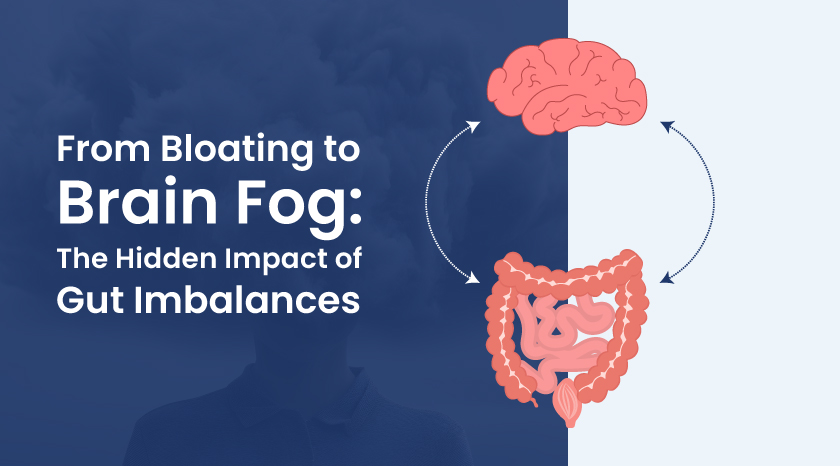Your gut is more than just a digestive organ, it’s a critical player in your overall health. Housing trillions of bacteria, fungi, and other microorganisms, your gut microbiome influences everything from your immune system to mental clarity. When your gut is healthy, it functions seamlessly, supporting your body and mind. However, gut imbalances can manifest in ways you might not expect, including bloating, fatigue, and even brain fog.
Understanding Gut Imbalances
A healthy gut microbiome maintains a delicate balance between beneficial and harmful microorganisms. Disruptions—caused by poor diet, stress, or medications like antibiotics—can lead to an overgrowth of harmful bacteria or a reduction in beneficial strains. These imbalances can compromise gut health and lead to systemic effects.
Symptoms of Gut Imbalances
1. Bloating and Digestive Discomfort
Imbalanced gut bacteria can lead to poor digestion, excess gas, and bloating. Certain bacteria may ferment undigested food in the intestines, causing discomfort and irregular bowel movements.
2. Brain Fog and Fatigue
The gut-brain connection, also known as the gut-brain axis, highlights the intricate communication between your gut and your brain. An unhealthy gut can trigger inflammation that affects neurotransmitter production, leading to mental fatigue, poor concentration, and brain fog.
3. Weakened Immunity
About 70% of your immune system resides in your gut. When the microbiome is out of balance, your body’s ability to fight off infections and inflammation is compromised.
4. Mood Swings and Stress
Your gut produces neurotransmitters like serotonin and dopamine, which regulate mood and stress levels. Gut imbalances can disrupt this production, contributing to anxiety, depression, and irritability.
5. Skin Issues
Conditions like acne, eczema, and rosacea can be linked to an unhealthy gut. Inflammation in the gut can trigger inflammatory responses in the skin, worsening these conditions.
What Causes Gut Imbalances?
Several factors can disrupt your gut microbiome, including:
- Diet: High sugar and processed food intake feed harmful bacteria.
- Medications: Antibiotics and some medications can kill off beneficial bacteria.
- Stress: Chronic stress alters gut motility and microbial balance.
- Sleep Deprivation: Poor sleep quality can negatively affect gut bacteria diversity.
How to Restore Gut Balance
1. Incorporate Probiotics and Prebiotics
Probiotics replenish beneficial bacteria, while prebiotics, found in fiber-rich foods, feed them.
2. Adopt a Gut-Friendly Diet
Reduce sugar and processed foods while increasing whole, plant-based options like vegetables, fruits, and whole grains.
3. Stay Hydrated
Proper hydration supports digestion and gut health.
4. Manage Stress
Practices like meditation and yoga can improve gut function by reducing stress hormones that impact the microbiome.
5. Consider Gut Health Supplements
Targeted gut health supplements can help restore and maintain balance effectively.
Why a Healthy Gut Matters
A balanced gut microbiome supports optimal digestion, clear thinking, strong immunity, and emotional stability. By addressing gut imbalances, you’re not just fixing bloating or fatigue—you’re enhancing your entire well-being.
The Benefits of Using Diversify Total Gut Health
Diversify Total Gut Health from Biom Probiotics is a comprehensive solution for addressing gut imbalances. This advanced formula combines probiotics, prebiotics, and digestive enzymes to restore a balanced microbiome, improve nutrient absorption, and reduce inflammation. Designed for holistic gut support, Diversify Total Gut Health helps you tackle symptoms like bloating, fatigue, and brain fog at their root.
Discover the benefits of Diversify Total Gut Health and take control of your wellness by visiting www.biomprobiotics.com. Empower your gut and transform your health from the inside out.





